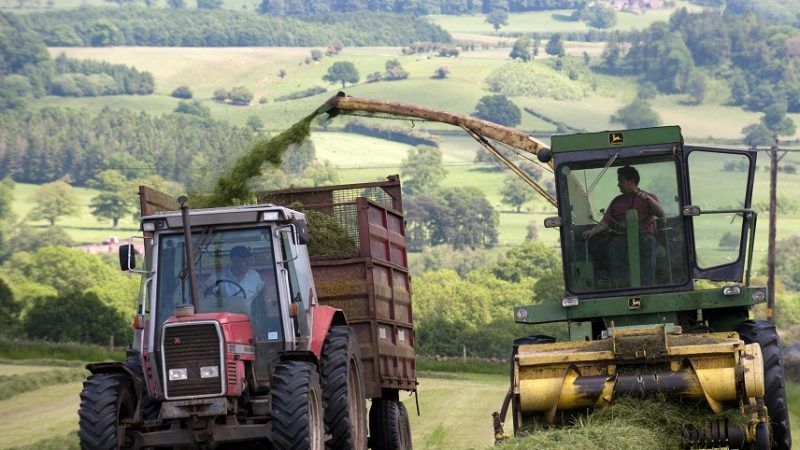British Think Tank Report Says EU Food Policies Raise Food Prices
A TaxPayers' Alliance report says EU farm subsidies, tariffs, and overly strict regulations have made food in Britain seventeen percent costlier.

A new report from the TaxPayers' Alliance, a British nonprofit, argues that British food prices have been made artificially higher—an estimated seventeen percent so—by a combination of EU "tariffs, subsidies, and overly restrictive regulations."
The 51-page report comes as Britain crafts its future ahead of 2019's Brexit, which will likely leave British lawmakers solely responsible for crafting the island's agricultural policies.
While some in Britain have argued that these high food prices necessitate government provide more aid to those in need, the TaxPayers' Alliance report concludes that since government policies are responsible for the higher food prices in the first place, it makes far more sense to repeal the bad policies, thus targeting the root causes of those problems.
"Brexit gives the UK an unprecedented opportunity to examine its agricultural and trade policies and adopt a more liberal approach which will ultimately result in a more productive agricultural sector and lower food prices for consumers," the Taxpayers' Alliance said in a recent farm-policy statement.
The report pins most of the blame for these higher food prices on the European Union's bloated Common Agriculture Policy, known as CAP.
"The programme is the most expensive scheme in the EU—accounting for more than 40% of its annual budget—and one of the most controversial," the BBC explained in a 2013 expose on CAP.
The BBC notes agricultural subsidies under CAP, which predates the creation of the EU by several decades, are responsible for "the creation of 'mountains' and 'lakes' of surplus food and drink."
But these subsidies, the TaxPayers' Alliance report reveals, are just one part of the CAP problem.
CAP also imposes steep import tariffs on food. For example, the group cites research in its report showing that CAP taxes dairy imports at a rate of more than thirty-five percent, and that "the tariff on processed chicken is 88 per cent." CAP tariffs also target non-food items like farm equipment.
Finally, the Taxpayers' Alliance report says strict CAP food-safety regulations also help make food prices artificially high.
This combination of subsidies, tariffs, and strict regulations have made CAP the perfect tool, as the 2013 BBC article concluded, to make "Europe's food prices some of the highest in the world."
So does the Taxpayers' Alliance report carry any weight in Britain? Maybe so.
The group was founded in 2004 to combat government waste, higher taxes, and the lack of government transparency. By 2009, The Guardian reported then, the Taxpayers' Alliance had become "arguably the most influential pressure group in the country."
That's great news. But why—beyond your status as a denizen of this Earth—should you care about some British think tank's report on the impact food taxes there?
Sure, we fought a war against Britain that was, I've argued, in large part, a revolt against food taxes. But that was a long time ago.
You should care about this report and the outcome of post-Brexit policies in Britain because the same issues the TaxPayers' Alliance highlights in its report are currently at issue right here in the United States. We certainly have wasteful farm-subsidy programs in place. It's a topic I've written about here probably a million times, including as recently as last week.
We have food taxes that some argue should be increased. Some states tax groceries. Some activists in this country have argued for taxing "bad" food and subsidizing "good" food. I've been part of the debate, for example serving as a panelist at this Urban Institute event on the validity of taxing so-called "junk food" in 2015.
Finally, we currently have a president who has argued for the purported merits of new import tariffs. More specifically, he seems particularly enamored of food tariffs.
If these lousy economic policies are bad for Britain and British consumers—as they most certainly are—then they are also bad for America and Americans. Hopefully, the TaxPayers' Alliance report will also serve as a wakeup call on this side of the pond.


Show Comments (11)